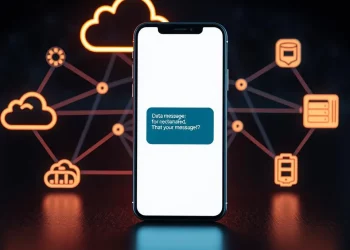In today’s digital age, text messaging has become integral to business communication, enabling companies to reach customers directly and efficiently. However, the convenience of SMS communication comes with a set of legal obligations and guidelines that businesses must adhere to. Understanding and complying with texting laws is essential to maintaining a positive reputation and avoiding potential legal consequences. This article delves into the intricate realm of texting laws for businesses in the USA.
Federal Regulations
Telephone Consumer Protection Act (TCPA):
Enacted by the Federal Communications Commission (FCC), the TCPA establishes rules for commercial text messages. It requires businesses to obtain express written consent from recipients before sending marketing messages. Consent must be clear, unambiguous, and include details about the nature of messages. Additionally, the TCPA mandates precise opt-out mechanisms for recipients who wish to unsubscribe.
CAN-SPAM Act:
While primarily addressing email communications, the CAN-SPAM Act also applies to text messages. It requires businesses to identify themselves as senders and provide accurate contact information. The Act prohibits misleading subject lines and mandates that recipients can opt out of future messages.
State-Specific Regulations
California Consumer Privacy Act (CCPA): California has stringent data protection laws. Businesses that collect personal information through text messages must disclose how this data is used and provide a way for recipients to opt out. CCPA empowers consumers with rights over their personal information, including the right to deletion.
Mobile Marketing Association (MMA) Guidelines: While not a law, the MMA provides industry best practices for SMS marketing. Following these guidelines can help businesses ensure compliance and ethical conduct.
Key Compliance Practices
Obtain Consent:
Prior consent is the cornerstone of compliant SMS marketing. Businesses must obtain written consent before sending commercial messages. This can be achieved through online forms, in-store sign-ups, or other transparent means.
Provide Opt-Out Options:
Every text message must include a straightforward way for recipients to opt out. Once a recipient opts out, businesses must promptly honor the request and cease further communication.
Honor Time Restrictions:
Be mindful of time zones when sending messages. Avoid sending texts too early in the morning or too late at night, as it could infringe upon the recipient’s privacy.
Accuracy and Transparency:
Ensure that the content of your text messages is accurate and the sender’s identity is displayed. Misleading or deceptive messages are unethical and could lead to legal consequences.
Regularly Update Consent Records:
Maintain records of consent, including when and how it was obtained. Regularly review and update these records to demonstrate compliance in case of legal inquiries.
Consequences of Non-Compliance
Failure to comply with texting laws can result in severe penalties, fines, and legal action. Class-action lawsuits related to TCPA violations are not uncommon and can lead to substantial financial losses.
In a rapidly evolving digital landscape, staying informed about texting laws and adapting your business practices is crucial. By respecting consumers’ privacy rights and adhering to legal guidelines, businesses can harness the power of text messaging as a valuable tool for communication while fostering trust and transparency in their interactions.
Industry-Specific Considerations
Texting laws can vary depending on the industry you operate in. For example, healthcare providers must comply with the Health Insurance Portability and Accountability Act (HIPAA) when communicating sensitive patient information via text. Financial institutions are subject to regulations from the Consumer Financial Protection Bureau (CFPB) to ensure secure and transparent customer communication.
Emerging Technologies and Trends
As technology evolves, so do the rules governing it. With the rise of AI-driven chatbots and automated messaging, businesses must ensure that their automated messages comply with existing regulations. Additionally, multimedia messaging (MMS) and rich media content bring new dimensions to messaging compliance.
International Implications
You must know international messaging regulations if your business engages with customers outside the USA. Different countries have varying laws that govern text messaging, so it’s crucial to research and understand these regulations before engaging in cross-border communication.
Ensuring Compliance
To navigate the complex landscape of texting laws, businesses can take proactive steps:
Legal Consultation:
Seek legal advice from telecommunication and data privacy law experts. Legal professionals can help interpret regulations and tailor compliance strategies to your business needs.
Internal Training:
Educate your team, especially marketing and customer service personnel, about texting laws and compliance measures. Regular training sessions can keep your staff up-to-date and aware of their responsibilities.
Consent Management Tools:
Invest in consent management tools that help capture, store, and update consent records. These tools can streamline compliance efforts and provide a record of consent for each contact.
Regular Audits:
Conduct periodic audits of your text messaging practices to ensure ongoing compliance. Audits help identify potential risk areas and allow you to make necessary adjustments.
Customer Education:
Inform your customers about your texting practices, how their data will be used, and their rights. Transparent communication can build trust and demonstrate your commitment to respecting their privacy.
The Ever-Evolving Landscape
Texting laws are not static; they evolve with technology and changing consumer expectations. Staying informed about these changes is crucial for maintaining compliance. As new laws are introduced or existing ones are amended, businesses must adapt their practices to align with legal requirements.
In the age of instant communication, text messaging offers businesses a powerful tool for engaging with customers. By understanding and adhering to texting laws, businesses can leverage this tool effectively while safeguarding consumer privacy, building trust, and avoiding potential legal pitfalls. While texting laws may seem intricate, they protect businesses and consumers in an increasingly connected digital world.
Explore more about SMS compliance.














